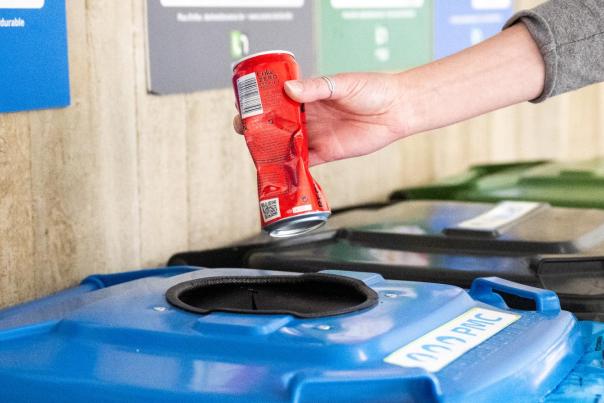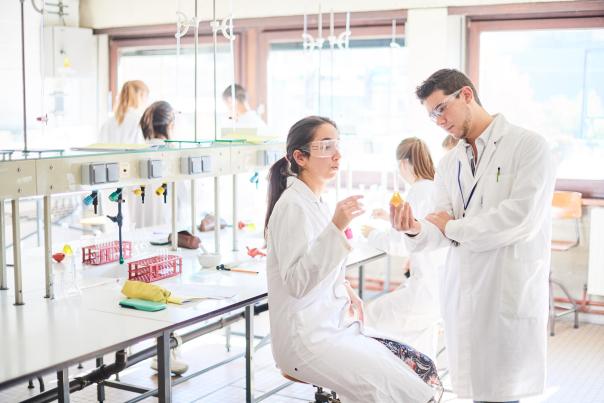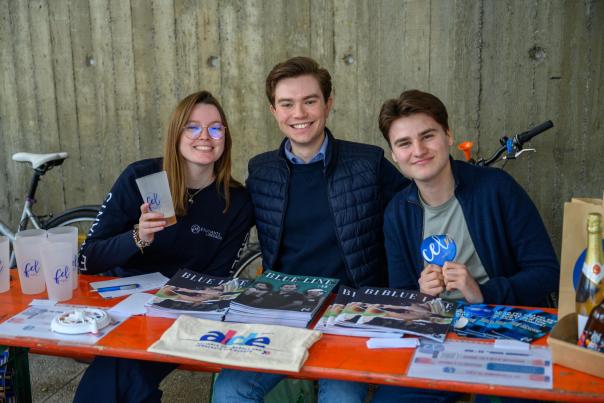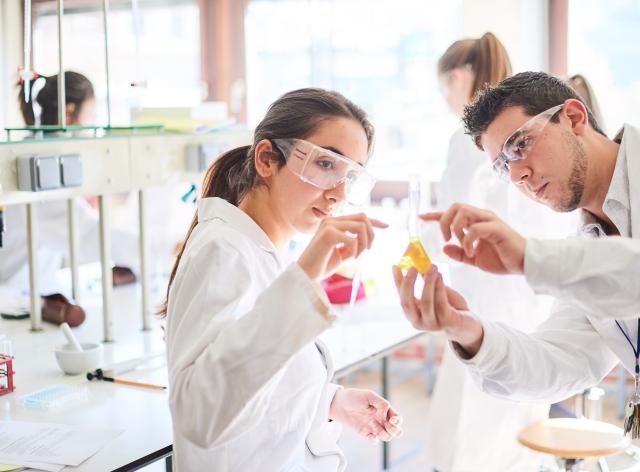Non-hazardous waste
The management of non-hazardous waste (PMC, paper-cardboard, household waste, glass, ...) is handled by the Service des Infrastructures et de la Gestion du Campus (SIGeC). Here are the latest initiatives that have been put in place:
- Glass sorting has been extended to student circles and accommodation, as well as to visiting professors' lodgings
- No more single-use plastic items are available from the Commissary
- Selective sorting has recently been extended to student circles (the last Gallic village to be conquer)
- 160 sorting islands have been installed and distributed throughout the corridors and halls of all buildings on campus
- Students now use reusable cups instead of disposable ones
- 90% of UNamur professors have given up plastic for their syllabi

Hazardous waste
The management of hazardous waste (chemicals, organic waste, etc.) is handled by the Prevention Department (SerP). A form enables you to order containers online for the disposal of liquid and solid hazardous waste of 3 types: biological, chemical and radioactive. If you have any questions about waste sorting, please send an e-mail to dechets@unamur.be.

A zero waste laboratory in URVI
Laboratory research generates a large amount of single-use plastic waste, as equipment must be clean or sterile. The Integrated Veterinary Research Unit (URVI) is gradually replacing these costly and polluting plastic supplies with their glass counterparts, which are washable, recyclable and, ultimately, more economical.
A CaNDLE 2021 project financed by the Fonds Jérôme.
Eco-responsible student life
In 2013, the Assemblée Générale des Etudiants (AGE) launched a pilot phase for the use of reusable cups. Since then, all student activities on campus use these reusable cups. It collaborates with non-profit organizations to offer ecological packs and training related to waste reduction.
The Kots-à-Projet are also part of an ecological commitment and organize awareness-raising activities on sustainable themes.

